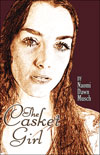A few days ago someone on Facebook said,
“Write to be pleasing, but never to please.”
I could sort of go with that in the sense that we shouldn’t form our words only to give people what they want to hear. But how does one write to be pleasing? I’ve also heard two other seemingly contradictory maxims:
“Write what is true to your heart,”
and
“Keep your audience in mind.”
So what is it? What is the true job, the biggest job of writers? What does it mean to write a novel or a short story that is pleasing?
Well-known author and blogger Randy Ingermanson, the self-proclaimed mad professor of fiction writing and creator of a plotting device called The Snowflake Method, also coined the phrase and idea that
“A writer’s primary job is to create a Powerful, Emotional Experience.”
Think about this. What makes a story stay with you for days and days, or possibly even years? It’s the emotional experience it evoked in you. You cared about the characters to such a degree that you pined for the situation they found themselves in — and that was some situation!
Your characters must exhibit deep inner desires and goals, something that drives them forward. They can’t just be bumbling along into a conflict that makes no sense. For some reason, their story goals have led them into their current nightmare.
And that situation– the plot — has to be built with the same care. It’s like climbing steep steps twisting up a mountain to a dark castle at the top. Each step must be more precarious than the last, more dangerous, more fraught with emotional entanglement for the reader. That castle at the top? That’s the black moment — the horrible thing that looms above (think the witch’s castle in The Wizard of Oz) which must be reached and conquered.
You know, speaking of Dorothy, we wouldn’t have cared one whit about her or enjoyed the emotional experience evoked in that story if we didn’t understand her earlier conflicts at home in Kansas, if we didn’t see her driven forward by a goal, if each step of the way didn’t bring greater peril.
Exercise:
- Put your character’s name at the top of a blank page. Below it under the heading of Goals, list the lifelong goals and story goals of your character. Include if those goals change along the way.
- Under another heading, Motivation, make a list of what is pushing her toward her goals, and make them both inner and outer pushes. Emotional pushes, and physical pushes.
- These first two lists will flesh out your character, giving her dimension and reality.
- Under a third heading, Conflict, tell what things are keeping her from her goals. What emotional, mental things prevent her from reaching her goals? What physical things? This list will enhance your plot.
- Think of how can you add to these lists so that readers will form an emotional attachment, and you’ll give them a Powerful Emotional Experience!
For further study, visit Randy Ingermanson’s site, Advanced Fiction Writing, and see the post, On Those Pesky Powerful Emotional Experiences.
















Speak Your Mind
You must be logged in to post a comment.